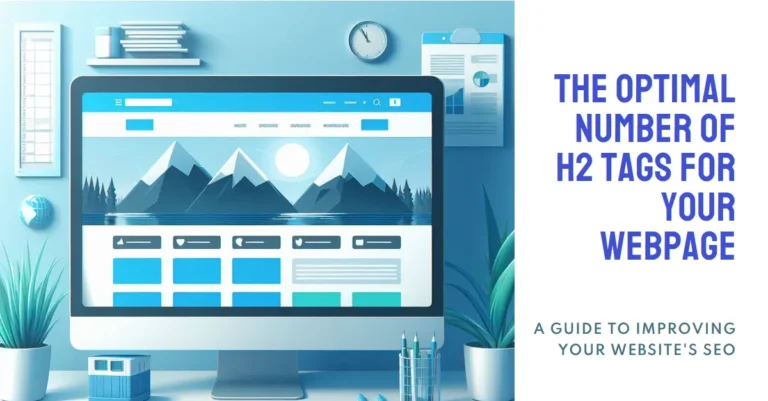Did you know that keyword stuffing can actually harm your website’s SEO rankings? Keyword stuffing refers to the excessive use of keywords in website content, and it can have negative consequences for your organic traffic growth. London Ontario businesses need to be aware of this detrimental practice and its impact on their online presence. Instead of focusing on keyword density, effective SEO strategies prioritize quality content that engages users and provides value.
1. Why Keyword Stuffing is Detrimental to SEO Rankings
Keyword stuffing may seem like a clever strategy to boost your website’s visibility on search engines, but it can actually do more harm than good. Here’s why keyword stuffing is bad for SEO in London Ontario:
1. Search Engine Penalties
Search engines, like Google, penalize websites that engage in keyword stuffing. This means that instead of improving your rankings, you could end up being pushed down the search results or even completely removed from them.
2. Poor User Experience and Engagement
High keyword density can result in a poor user experience, which is why the importance of website speed for London businesses cannot be overstated. When your content is filled with repetitive keywords, it becomes difficult for readers to understand and engage with your website. Visitors are more likely to leave if they find the content unnatural or spammy.
3. Relevance and Value
Keyword stuffing makes it challenging for search engines to understand the relevance and value of your web pages. Instead of focusing on creating valuable content for users, you’re prioritizing search engine algorithms. This can ultimately lead to lower rankings because search engines prioritize websites that provide high-quality and relevant information.
4. Flagged as Spam
Websites with excessive keywords may be flagged as spam by search engines. When this happens, not only will your rankings suffer, but your credibility will also be compromised. Users are less likely to trust websites that are labeled as spammy.
2. Consequences and Dangers of Keyword Stuffing in London Ontario
Keyword stuffing may seem like a shortcut to boost your website’s visibility, but it can have severe consequences for your SEO efforts in London Ontario. Let’s explore why keyword stuffing is bad for SEO and what dangers it poses to your online presence.
1. Unnatural and Untrustworthy Content
When you make SEO mistakes in London by stuffing your content with an excessive amount of keywords, it becomes unnatural and untrustworthy to users. Your sentences may sound forced, awkward, and difficult to read. Visitors to your website might find the content confusing or irrelevant, leading them to lose trust in your brand.
2. Google’s Algorithm Penalties
Google’s algorithms are smart and sophisticated. They are designed to detect keyword stuffing techniques. When they identify websites engaging in this practice, they impose penalties that can significantly harm your search engine rankings. Your website may be pushed down in the search results or even removed altogether.
3. Loss of Credibility and Potential Customers
Keyword stuffing undermines the credibility of your website. Users who come across keyword-stuffed content are likely to perceive it as spammy or low-quality. This negative impression can deter potential customers from engaging with your business or making purchases.
4. Increased Competition for Local Businesses
In London Ontario, local businesses face fierce competition in the digital landscape. Resorting to unethical practices like keyword stuffing may provide temporary gains but can ultimately harm your long-term success. Instead of relying on shortcuts, focus on creating high-quality content that resonates with your target audience.
3. Avoiding Keyword Stuffing for Better SEO Ranking
To improve your SEO ranking in London Ontario, it’s essential to avoid keyword stuffing. Instead, focus on creating high-quality, informative content that meets user intent. Here are some key points to keep in mind:
1. Use Relevant Keywords Naturally
Rather than overusing keywords, aim to incorporate them naturally throughout your content. This means using them in a way that makes sense and adds value to the reader’s experience. Keyword stuffing, which involves cramming many keywords into your content without regard for readability or context, can harm your search engine rankings.
2. Conduct Thorough Keyword Research
Take the time to conduct thorough keyword research to improve GMB rankings in London. Identify relevant long-tail keywords that align with your target audience’s search queries. Long-tail keywords, such as “SEO service in London Ontario,” are more specific phrases that often have less competition but can still drive targeted traffic to your website. By incorporating these keywords strategically into your content, you can boost your SEO efforts.
3. Prioritize User Experience
When creating content, prioritize the user experience above all else. Ensure that your content is valuable, engaging, and easy to read. This includes using a content strategy for London business, clear headings and subheadings, breaking up text with bullet points or numbered lists where appropriate, and utilizing images and other multimedia elements effectively.
By following these guidelines and avoiding keyword stuffing practices, you can improve both the visibility of your website in search engine rankings and the overall user experience. Additionally, implementing effective SEO tasks such as mobile optimization will further enhance your website’s performance.
4. Strategies to Maintain Optimal Keyword Density in SEO Content
To ensure your SEO content is effective without resorting to keyword stuffing, it’s important to adopt a balanced approach. Here are some strategies you can employ to maintain optimal keyword density:
1. Incorporate Keywords Strategically
Aim for a natural integration of keywords within your content. Instead of repetitively using the exact phrases, consider incorporating synonyms, related terms, and variations of keywords. This not only helps avoid redundancy but also provides a richer experience for readers.
2. Effective Use of Header Tags
Utilize header tags (H1, H2) effectively by including targeted keywords where appropriate. These tags not only help structure your content but also signal search engines about the importance and relevance of specific sections. However, remember not to overdo it; use header tags sparingly and purposefully.
3. Monitor Keyword Density
Keep an eye on your SEO London Ontario keyword density using tools like Yoast or SEMrush. These tools analyze your content and provide insights into the frequency at which keywords appear. Aim to keep your keyword density within the recommended range to ensure that search engines understand the focus of your content without penalizing you for over-optimization.
By following these strategies, you can create high-quality content that strikes a balance between optimizing for search rankings and providing valuable information to your audience.
5. Adapting to Google Algorithm Updates: Combatting Keyword Stuffing
To maintain a strong online presence and improve your website’s visibility on search engines like Google, it’s crucial to stay updated with their algorithm changes and guidelines. One common practice that can harm your SEO efforts is keyword stuffing, which involves excessively using keywords in an attempt to manipulate search engine rankings. However, search engines have become smarter over the years and are quick to penalize websites that engage in such spammy tactics.
1. Stay updated with Google’s algorithm changes
Google frequently updates its algorithms to improve GMB rankings in London and deliver more accurate and relevant search results. If you’re looking for an SEO service in London Ontario, it’s important to stay up-to-date with these algorithm changes. These updates aim to prioritize high-quality content from a website designer in London Ontario that provides value to users. By staying informed about these changes, you can adapt your SEO strategies accordingly.
2. Focus on providing valuable, relevant content
Instead of focusing solely on keyword density, prioritize creating content that aligns with user search intent. Think about what information users are looking for when they enter a specific search term or topic. By addressing their needs and providing helpful insights or solutions, you not only improve user experience but also increase the chances of ranking higher in search results.
3. Regularly audit your website for keyword stuffing
It’s essential to regularly audit your website for any instances of keyword stuffing. Use tools like Google Search Console or other SEO auditing software to identify pages where keywords are used excessively. Once identified, make necessary adjustments by rewriting content naturally without forcing keywords into every sentence.
4. Embrace holistic SEO strategies
Rather than fixating solely on keyword density, embrace holistic SEO strategies that prioritize user experience and quality content. Optimize your website structure and improve page load speed to enhance SEO tasks. Ensure mobile-friendliness for better search engine optimization. Create engaging content that resonates with human readers while still incorporating relevant keywords naturally to maximize SEO tasks.
Remember, by adapting to Google’s algorithm updates and avoiding keyword stuffing practices, you’ll be able to enhance your website’s visibility in London Ontario’s competitive online landscape.
6. The Importance of Ethical SEO Practices in London Ontario
In today’s digital landscape, it’s crucial for London businesses to understand the significance of ethical SEO practices in their content strategy.
Keyword stuffing may seem like a quick fix to boost your website’s visibility in search engine rankings, but it can have detrimental consequences for your online presence.
By overloading your content with excessive keywords, you not only risk alienating your audience but also attracting penalties from search engines like Google.
Search engines are smart enough to recognize this technique and penalize websites that engage in such practices. Instead of resorting to keyword stuffing, focus on creating high-quality content that provides value to your readers. By adopting ethical SEO practices, you’ll build trust and credibility with both users and search engines.
In order to succeed in the ever-evolving world of SEO, it’s essential to adapt and stay up-to-date with Google algorithm updates.
These updates are designed to improve user experience by promoting relevant and informative content while penalizing those who try to manipulate rankings through keyword stuffing. Remember, quality should always take precedence over quantity.
7. FAQs
1. Can keyword stuffing really harm my website’s SEO?
Yes, keyword stuffing can harm your website’s SEO. Search engines like Google have become increasingly sophisticated at detecting unnatural practices aimed at manipulating search results. Keyword stuffing is considered a black hat SEO technique that violates Google’s guidelines and can lead to penalties or even getting banned from search engine results pages (SERPs).
2. How can I avoid keyword stuffing while optimizing my content?
To avoid keyword stuffing, focus on creating high-quality content that offers value and relevance to your audience. Use keywords naturally throughout your text without forcing them into every sentence or paragraph. Prioritize user experience by writing for humans rather than search engines, and make sure your content flows smoothly and reads naturally.
3. What is the optimal keyword density for SEO?
There is no specific number for optimal keyword density in SEO. Instead of fixating on a particular percentage, concentrate on creating valuable and informative content that naturally incorporates relevant keywords. Remember, quality content that engages readers will ultimately lead to better SEO rankings.
4. How can I adapt to Google algorithm updates?
Adapting to Google algorithm updates requires staying informed about the latest changes and best practices in SEO. Regularly monitor industry news, follow reputable SEO blogs, and analyze your website’s performance using tools like Google Analytics. By understanding the updates and adjusting your strategies accordingly, you can ensure that your website remains optimized for search engine rankings.
5. Are there any other ethical SEO practices I should be aware of?
Yes, apart from avoiding keyword stuffing, there are several other ethical SEO practices you should adopt. These include creating unique and valuable content, optimizing page load speed, improving user experience through intuitive site navigation, building high-quality backlinks from reputable sources, and ensuring mobile-friendliness for your website. By implementing these practices, you can enhance your website’s visibility while providing a positive experience for users.










